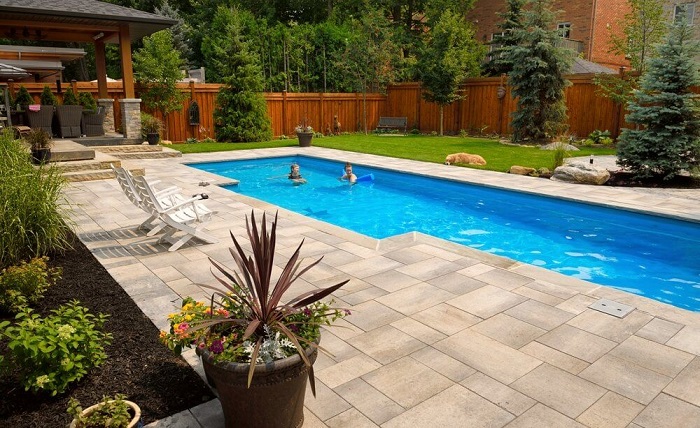Owning an inground pool offers countless hours of enjoyment and relaxation for family and friends. However, maintaining it properly is essential to keep your pool clean, safe, and ready for use all swimming season. Here are some key maintenance tips to ensure your inground pool stays in excellent condition.
1. Regular Cleaning
Keeping your pool clean is fundamental to maintaining water quality and prolonging the life of your pool components.
Skimming and Vacuuming
Regular skimming of the water’s surface and vacuuming the bottom of the pool are necessary to remove debris such as leaves, dirt, and bugs. This prevents the accumulation of sediments that can lead to algae growth and filter clogging.
2. Maintain Proper Chemical Levels
Chemical balance is essential in preventing bacteria and algae from thriving in your pool.
Regular Testing and Adjustment
It’s important to test the water regularly for pH, chlorine, and other chemical levels. Use a reliable testing kit each week and adjust chemicals as needed to maintain a safe and clear pool environment. Proper chemical management ensures the water is gentle on the skin and eyes of swimmers.
3. Care for the Pool Filter
The filter is one of the most crucial components for keeping your inground pool clean.
Routine Cleaning and Replacement
Clean your filter regularly to ensure it functions efficiently. The frequency will depend on the type of filter you have (sand, cartridge, or diatomaceous earth) and how often the pool is used. Check the manufacturer’s recommendations for cleaning and replacing your filter media.
4. Monitor Water Level
The water level in your pool may fluctuate due to evaporation, especially in dry climates, or following an intense swim session.
Adjusting Water Levels
Maintain the water level to ensure your pump and filter systems work effectively. Water should be at the center level of your pool skimmer for optimal performance. If the water is too low, it can cause the pump to run dry and overheat.
5. Inspect and Repair the Pool Liner
The liner protects the structure of your inground pool and ensures it remains watertight.
Regular Checks for Damage
Inspect your pool liner regularly for tears or leaks, especially if you notice your water level dropping more than usual. Small repairs can often be made with a patch kit, but larger issues may require professional intervention.
6. Winterization and Seasonal Care
Winterizing your pool is crucial to avoid damage caused by freezing temperatures.
Preparing for the Off-Season
Properly winterizing your pool, including draining water from the plumbing, adding winter chemicals, and covering the pool, can prevent costly repairs caused by freezing and thawing cycles.
7. Professional Annual Service
Although regular homeowner maintenance is crucial, having your pool professionally serviced at least once a year can help catch issues that may not be apparent.
Benefits of Professional Expertise
A professional can thoroughly inspect your pool’s mechanical systems, including pumps, heating, and filtration, to ensure they are operating correctly and efficiently. This annual check-up can help extend the life of your pool and prevent disruptions during the swim season.
Conclusion
Maintaining an inground pool in Utah demands consistent effort and attention to detail, given the state’s unique climate and environmental conditions. By adhering to essential practices like regular cleaning, balancing water chemistry, and ensuring equipment functionality, you can keep your pool safe and enjoyable for everyone. Routine maintenance not only prolongs your pool’s lifespan and prevents expensive repairs but also enhances the overall ownership experience by creating an inviting environment for family and friends. Whether it’s skimming debris, checking pH levels, or servicing filters, each task is crucial for keeping your pool in top condition throughout the swimming season.




